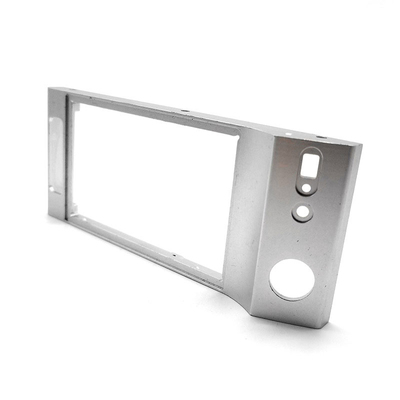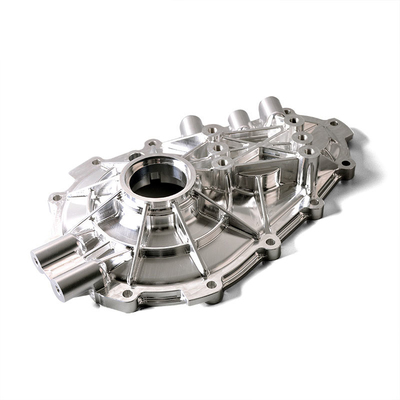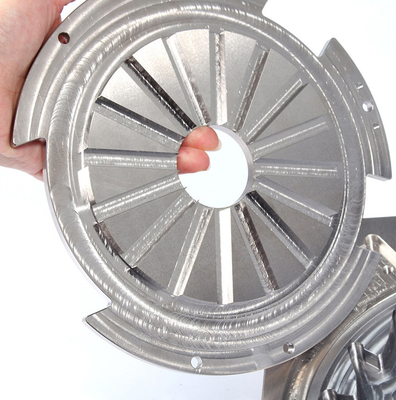Rusal's discontinued aluminum plant will be transformed into a Bitcoin mining farm
According to a report by the Russian local media RBC, the Nadvoitsy aluminum plant of Rusal, the world's second largest aluminum company, will reopen its old site, but instead of continuing its aluminum production operations, it will be transformed into a "bitcoin mine."
The US Office of Foreign Assets Control (OFAC) imposed sanctions on Rusal in April 2018. At that time, the U.S. Treasury Department called Rusal's major shareholder Oleg Deripaska a "designated Russian oligarch" and imposed sanctions on the company. The Nadvoitsy aluminum plant was once one of Russia's largest metal manufacturing plants. However, due to the impact of the economic sanctions, the plant was closed due to the loss of American customers.
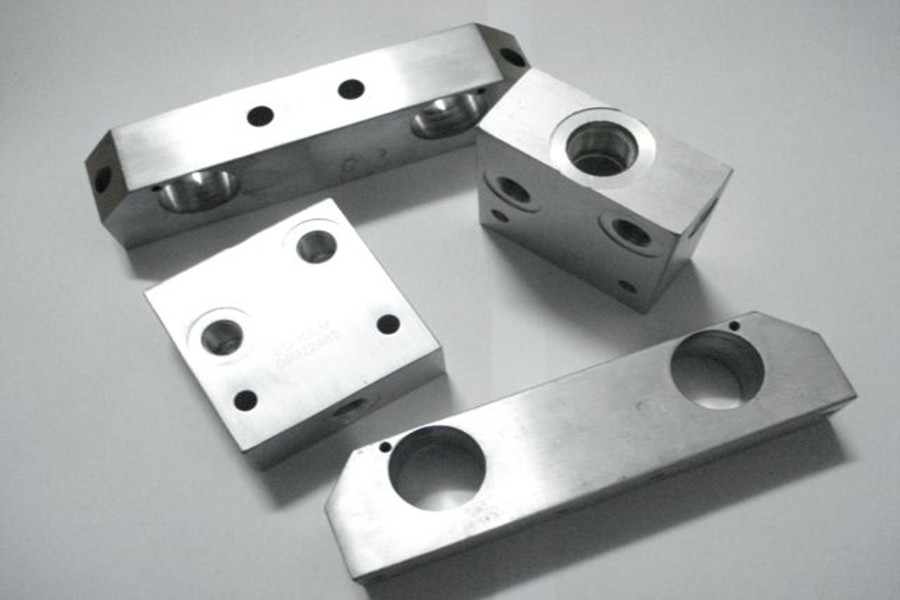
Subsequently, Rusal agreed to lease part of the Nadvoitsy aluminum plant to the Russian Mining Corporation (RMC). RMC founder Dmitry Marinichev said: “Right now, the plant is unprofitable for Rusal, and almost no electricity is provided to it. People who live in a single industrial town near the plant have nowhere to go.” Explaining the new When targeting the cryptocurrency joint venture, he added: “Our idea is to change the purpose of the factory and sell computing power.”
According to reports, RMC plans to install cryptocurrency mining machines in its factories and use its cheap power sources to make it a giant Bitcoin mining farm, with a focus on mining 20% of the world’s BTC. RBC also reported that Russia hopes that the mine's monthly income can reach 100 million U.S. dollars, and create an ecosystem for miners and investors, and then challenge China's dominance in the global Bitcoin mining industry. Currently, China controls 70% of the global Bitcoin mining market.
Although the price of Bitcoin has been unstable for some time, investors’ interest in cryptocurrency mining has been on the rise, leading several companies to start building large-scale mining farms. Just recently, Bitmain informed the public of its plans to build large-scale mining facilities in the United States. In addition, other investors have also joined forces to inject 50 million U.S. dollars into the development of another large cryptocurrency mining facility.
In April 2001, the company officially obtained the permission of the Russian Anti-Monopoly Ministry to raise funds through the shareholding of Russian companies participating in the company’s production process. After completing this grouping process, the company's capital has exceeded 8 billion U.S. dollars, thus entering the ranks of the world's top three aluminum production. The annual output of RUSAL's aluminum is about 4.2 million tons, accounting for about 12% of the world's aluminum output. The annual output of alumina is about 11.3 million tons, accounting for about 15% of the world market. The company owns 15 aluminum processing plants, 12 alumina processing plants, 7 bauxite mining plants, 3 aluminum foil rolling plants and 2 cathode block production plants. The daily output of various products of the company is approximately: 11,500 tons of aluminum, 31,000 tons of alumina, 53,000 tons of bauxite, and 197 tons of aluminum foil.
Rusal United Company is an export-oriented enterprise, 80% of its products are sold to the international market, and the main export product is primary aluminum. However, the company strives to increase the proportion of deep-processed products to meet the needs of end users. Now, the list of aluminum products provided by the company to customers covers a wide range. These products can be used in transportation, construction, oil exploration, metallurgy, machine manufacturing, instrument manufacturing, food industry and other industries. RUSAL Corporation attaches great importance to product quality and production environmental safety. It is the first company in Russia to promote the environmental management system in this industry and to pass the ISO14000 international environmental protection certification.
On August 18, an explosion occurred in the Sayano-Shushenskaya unit, Russia’s largest hydroelectric power station, resulting in 66 deaths and 11 missing. The parent company, Rus Hydro, immediately suspended its operations in London and the United Kingdom. Stock trading on the Russian market. The Sayan-Shushensk Hydropower Station was built in 1963. The project was completed in 1987. The annual power generation capacity is 23.5 billion kWh-the fourth largest hydroelectric power station in the world-nearly 70% of the electricity supplied by the nearby Rusal Large electrolytic aluminum plants Khakassia (300,000 tons/year) and Sayanogorsk (550,000 tons/year).
The explosion accident caused the electrolytic aluminum plant to be out of power for one hour, and Rusal immediately adjusted power from two nearby areas, ensuring the normal production of the aluminum plant. According to a spokesperson for the Russian Hydropower Group (RusHydro), the hydropower station is equipped with 8 units, of which 6 have been severely damaged. If they are completely repaired and operated normally, it is estimated that it will take about 4-5 years! Rusal's two major aluminum plants with an annual production capacity of 500,000 tons face the threat of power outages. For Rusal, which has just weathered the debt crisis, this is another severe test.
The Siberia area in Russia has a vast territory, abundant hydropower resources, low electricity prices, low aluminum ingot production costs, and obvious advantages in the development of electrolytic aluminum. Russia has developed a number of large-scale electrolytic aluminum plants in this area. In the early 1990s, following the disintegration of the Soviet Union, the great domestic recession and the collapse of Eastern European countries, Russia exported more than 90% of its aluminum ingots to overseas markets. From 1991 to 1993, the export of primary aluminum jumped from the initial 700,000 tons to 2.2 million tons. In order to improve electrolytic aluminum production technology, solve raw material supply, further expand production capacity, and enhance market competitiveness, Rusal has rapidly developed into an aluminum giant with important international influence through integration and mergers.
In 1994, Russia’s second richest man, Yeltsin’s grandson-in-law, and 26-year-old Oleg Deripaska, became the director of the Sayanosk Aluminum Plant. After that, he co-founded the Siberian Aluminum Company. In 2000, Siberia Aluminum Corporation merged with two aluminum plants controlled by Roman Abramovich, the richest man in Russia, to form Russia Aluminum Corporation. Jeripaska held 57% of Rusal's shares through the "Base El" investment company, and expanded into the machinery manufacturing industry. By 2001, Jeripaska had acquired most of the Russian factories, such as Gas, Volga, etc.
On October 9, 2006, Rusal, Siberian Ural Aluminum and Swiss Glencore signed an agreement to merge and form United Company Rusal (United Company Rusal). The three companies hold 66% and 22% respectively. % And 12% of the equity; February 14, 2007, the Russian Anti-Monopoly Commission (FAS) formally approved the combination of Russia's United Aluminum Group. The newly formed RUSAL Group's electrolytic aluminum production reached 4.4 million tons/year, and aluminum output was 11.3 million tons/year, accounting for 12.5% and 16% of the total global supply respectively, becoming the world's largest producer of electrolytic aluminum and alumina .
Although the international oil and gas and raw material prices have risen sharply in the past few years, Russia's economic strength has clearly rebounded, domestic aluminum consumption demand has improved, and aluminum ingot exports have declined, but overseas markets still account for about 80% of Russia's total aluminum ingot consumption. For example, in 2008, Russia exported 3.438 million tons of primary aluminum, a decrease of 9.5% from the 2005 peak of 3.798 million tons. Last year, Russia’s electrolytic aluminum output was 4.191 million tons. Rusal ingots are mainly exported to the United States, Japan and Europe, accounting for 19% and 18% of the total aluminum ingot imports of the first two countries respectively.
Since the second half of last year, the financial turmoil has swept the world, stocks and commodity prices have plummeted, the real estate and automobile markets have suffered heavy losses, and aluminum ingot consumption has suffered a fatal impact-LME aluminum ingot inventories have continued to grow, reaching a record high of 4.6 million tons.
In order to reduce production costs and losses, in March this year, the United Aluminum Corporation of Russia announced that in 2009, the production of electrolytic aluminum would be reduced by 500,000 tons and alumina production by 3.9 million tons. Rusal was burdened with a huge debt of 14 billion U.S. dollars. The price of aluminum plummeted, making ends meet. The ruble depreciated by more than 35%, which aggravated the company's debt burden. According to media reports, Rusal owes $7.4 billion in debt to eight overseas institutions, including BNB Paribas, Natixis, and Societe Generale. Another US$7 billion of debt comes from domestic banking institutions and financial oligarchs, and US$4.5 billion is due at the end of this year. RUSAL owes domestic metal giant Mikhail Prokhopow (Mikhail Prokhopow) $2.8 billion; owes billionaire Mikhail Friedman's Alfa Bank (Alfa) $1 billion, Alfa Bank (Alfa) Holding shares in VIMPELCOM, Russia’s second-largest mobile phone operator, Alpha Bank obtained a US$2 billion loan from the government in order to repay overseas loans.
In order to help companies tide over the difficulties, the Russian government promised to provide a group of large companies with a loan of 50 billion U.S. dollars. RUSAL received a loan of US$4.5 billion, saving its 25%-controlled Norilsk Nickel Company from being taken over by overseas creditors. However, due to the decline in Russia's fiscal revenue, the state's fiscal budget and social and public expenditures are insufficient, the government fund rescue plan has not been fully implemented.
In the face of the dangerous market environment, Russia is actively seeking ways to break through. The company actively uses aluminum ingots for debt mortgage financing to ensure proper cash flow. According to market rumors, in the second quarter of this year, Russia sold 500,000 tons of aluminum ingots to its partner Glencore to obtain financing. When the company’s funds are tight, the aluminum ingots are pledged to financial institutions, and a certain amount of loans can be obtained according to the market interest rate; when the aluminum price reaches a reasonable price, the company sells for cash and returns the loan from the financial institution. This is the domestic and foreign electrolytic aluminum plant or A very common practice in trading companies. The warehouse receipt financing implemented in the LME futures market also belongs to this type of financing method. In addition to the above-mentioned situation in the LME futures trading market, some financial institutions or trading companies use spot and forward futures premiums and discounts for cross-month arbitrage transactions, that is, when the premium of the forward contract is higher than the bank interest in the same period, they can buy Spot or short-term contracts, short forward futures, lock in profits. The LME aluminum futures transaction volume is huge, the market liquidity is good, and the warehouse receipt financing is convenient and mature. In the first half of the year, Rusal used aluminum ingots to pledge financing due to debt problems. China's demand for imported aluminum ingots unexpectedly increased, making the international supply of aluminum ingots suddenly tight.
Japan’s domestic production of electrolytic aluminum is very small, and a large number of aluminum ingots need to be imported every year. Therefore, each quarter of Japan’s aluminum ingot import premium has often become the vane of aluminum ingot supply and demand in Asia. At the beginning of the year, due to the sluggish domestic automobile and construction markets, Japan's aluminum ingot consumption demand fell sharply, and the premium of imported aluminum ingots fell to a low of 57-58 US dollars/ton, and it did not sign a long-term supply contract with Rusal. Aluminum ingots in Asia are tight, pushing up Japan's aluminum ingot import premium all the way up. In the third quarter, it rose by 30% to 68-75 US dollars/ton. The fourth quarter premium currently under negotiation is expected to be around 120 US dollars/ton! At present, the premium of aluminum ingot imports in Asia is still as high as US$90-130/ton.
In addition, Rusal actively negotiated with creditors on debt issues, seeking the other side’s understanding and cooperation. At the end of July, Rusal reached an agreement on debt restructuring with the coordination committee representing 70 international banks. According to the agreement, Rusal will resolve the debt problem in two steps within the next seven years. In the first four years, RUSAL will take advantage of the favorable opportunity of rising aluminum prices and rising consumer demand to increase operational efficiency and promise to pay off US$5 billion in debt by the fourth quarter of 2013. During this period, Rusal can follow the market conditions and adhere to the principle of "acting within its capacity" to ensure the stability and continuity of the company's production. In the second stage, the creditor can refinance the debt at the will of Rusal for a period of three years. The coordination committee agreed to Russia's construction of the Boguchanskay hydropower station, a move that is vital to the future development of Rusal.
Link to this article: Rusal's discontinued aluminum plant will be transformed into a Bitcoin mining farm
Reprint Statement: If there are no special instructions, all articles on this site are original. Please indicate the source for reprinting:https://www.cncmachiningptj.com
 PTJ® provides a full range of Custom Precision cnc machining china services.ISO 9001:2015 &AS-9100 certified.
PTJ® provides a full range of Custom Precision cnc machining china services.ISO 9001:2015 &AS-9100 certified.
Machining shop specializing in fabrication services for construction and transportation industries. Capabilities include plasma and oxy-fuel cutting, Tailored machining, MIG and Custom Aluminum Cnc Precision Milling Welding Jig Fixture, roll forming, assembly, Lathe machining stainless steel cnc machine shaft, shearing, and CNC Swiss Machining services. Materials handled include carbon and Passivation Stainless Steel Machining Cover Plate Parts.
Tell us a little about your project’s budget and expected delivery time. We will strategize with you to provide the most cost-effective services to help you reach your target,You are welcome to contact us directly ( sales@pintejin.com ) .
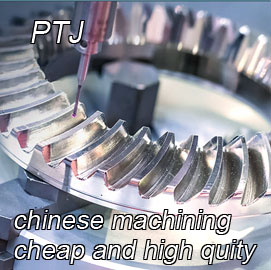
- 5 Axis Machining
- Cnc Milling
- Cnc Turning
- Machining Industries
- Machining Process
- Surface Treatment
- Metal Machining
- Plastic Machining
- Powder Metallurgy Mold
- Die Casting
- Parts Gallery
- Auto Metal Parts
- Machinery Parts
- LED Heatsink
- Building Parts
- Mobile Parts
- Medical Parts
- Electronic Parts
- Tailored Machining
- Bicycle Parts
- Aluminum Machining
- Titanium Machining
- Stainless Steel Machining
- Copper Machining
- Brass Machining
- Super Alloy Machining
- Peek Machining
- UHMW Machining
- Unilate Machining
- PA6 Machining
- PPS Machining
- Teflon Machining
- Inconel Machining
- Tool Steel Machining
- More Material


